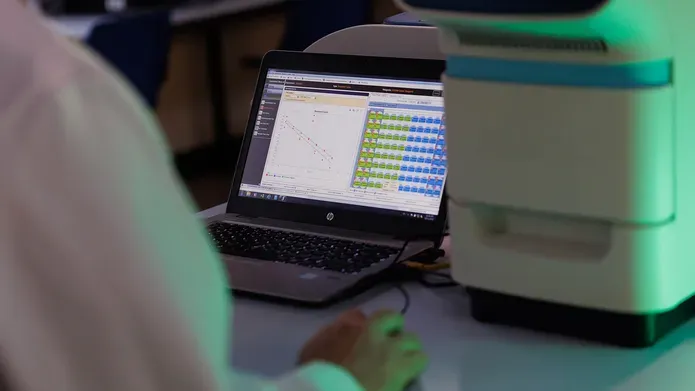Research project
New technologies in DNA Analysis
We are exploring alternative methods of DNA analysis using oxford nanopore and other technologies.

Active
March 2017
Project personnel
What we are doing
We are addressing some of the main difficulties of DNA analysis in forensic science by finding new ways of analysing samples with multiple contributors. When samples are collected at a crime scene and sent for analysis, a complex mix of DNA sequences can be detected; for example if the sample was collected from a bag, multiple people may have touched the bag and the sample can contain DNA from all those individuals.
Why we are we doing it
The current data analysis techniques for DNA profiling do not always give consistent results and the methods used are not always transparent. We are looking at new techniques to analyse these complex samples to generate clearer and more robust DNA evidence in the criminal justice system. Legal challenges are being made on the basis that the analysis is commercially based black box with no transparency to allow validation of the process.
How we will do it
Most forensic DNA analysis involves the use of Short Tandem Repeat Markers (STRs) which allow us to compare particular parts of a DNA sequence. We are developing new methods of DNA analysis using unique markers and Massively Parallel Sequencing to provide data which can be analysed in consistent, transparent ways to allow analysis of samples containing DNA from multiple contributors. These methods will also be compatible with the current STRs markers to allow continued use of the existing DNA databases.
Outputs
DNA-nanopore technology: a human perspective (2021)
Gray, A 2021, 'DNA-nanopore technology: a human perspective', Emerging Topics in Life Sciences, vol. 5, no. 3, ETLS20200282, pp. 455-463.
Interpretation of DNA data within the context of UK forensic science: investigation (2021)
Daeid, NN (ed.), Hackman, L (ed.), Pope, S & Puch-Solis, R 2021, 'Interpretation of DNA data within the context of UK forensic science: investigation', Emerging Topics in Life Sciences, vol. 5, no. 3, pp. 395–404.
Interpretation of DNA data within the context of UK forensic science: evaluation (2021)
Daeid, NN (ed.), Hackman, L (ed.), Puch-Solis, R & Pope, S 2021, 'Interpretation of DNA data within the context of UK forensic science: evaluation', Emerging Topics in Life Sciences, vol. 5, no. 3, pp. 405–413.
Impact of metal ions on PCR inhibition and RT-PCR efficiency (2021)
Kuffel, A, Gray, A & Nic Daeid, N 2021, 'Impact of metal ions on PCR inhibition and RT-PCR efficiency', International Journal of Legal Medicine, vol. 135, no. 1, pp. 63-72.
Human Leukocyte Antigen alleles as an aid to STR in complex forensic DNA samples (2020)
Kuffel, A, Gray, A & Nic Daeid, N 2020, 'Human Leukocyte Antigen alleles as an aid to STR in complex forensic DNA samples', Science and Justice, vol. 60, no. 1, pp. 1-8.
People
Project team
Dr Agnieszka Kuffel